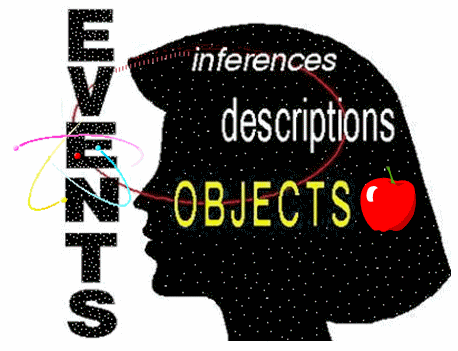
Seeing 'is' Believing
Written 1996 by Steven LewisOne of the principles of General Semantics is what Korzybski called "non-elementalism." I prefer to call it "non-isolationism." One of its applications is that we cannot sharply separate 'senses' and 'mind.' Our higher and lower neural integrating centers of the brain work interactively creating what we can call a circularity of human knowledge. We tend to see what we expect to see or what we believe.
For example, writers learn quickly that no matter how closely we scrutinize our copy, it very likely will be sent with misspelled words or missing words. How is it we can proof our copy so closely without exorcising these mistakes? Simply because we 'know' what we want to say and we unconsciously insert the missing or correct information as we proof. That's why a good spelling checker and copy editor can be useful in clarifying our writing.

This same phenomenon is at work when, for example, we suspect someone of stealing from us and, subsequently, their behaviors 'confirm' to us their guilt, even when they are not guilty. It manifests itself in people who are easily offended by trivial incidents.
My third grade teacher, Mrs. Litterell, would send each birthday student to the front of the class with a music box that played the happy birthday song. She would tell us to listen closely as the student cranked the box to hear if the box played the name of the birthday student. And sure enough, on Idalea's birthday it played "Happy Birthday Dear Idalea, Happy Birthday to You!" On Albert's birthday it played "Happy Birthday Dear Albert ...." The class was most impressed by this magic box that seemed to know whose birthday it was.
Today I realize that the box played the 'same' song each time. It was our interpretation that changed. We were listening intently for the name of the birthday student, and the box matched our expectations. Actually, our expectations were projected onto the music.
This projection mechanism is not something that can, or should, be avoided. It's a consequence of our nervous systems' search for meanings amongst the meaningless bits of data of our experience. We can, however, be conscious of the mechanism .... that is, conscious of abstracting. This higher consciousness should negate the negative consequences of this interaction between different orders of abstraction -- the 'senses' and 'mind.'
Go to General Semantics Home Page ||| Go to Steven Lewis Home Page